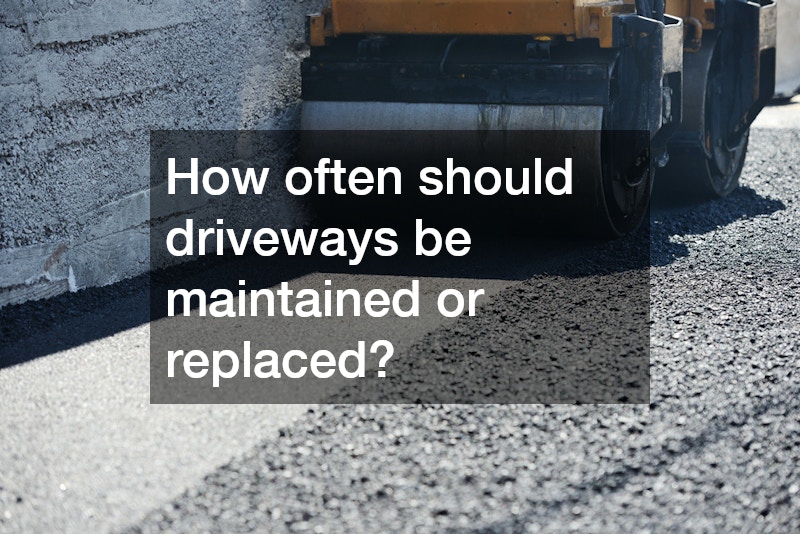
How to Know When its Time to Call a Driveway Paving Contractor
In this article, we will explore the signs that indicate it’s time to contact a driveway paving contractor. A well-maintained driveway not only enhances your home’s curb appeal but also plays a key role in ensuring safety for vehicles and pedestrians. Addressing wear and tear early can prevent more costly repairs down the line and help maintain your property’s overall value and appearance.
What are the common signs of driveway damage?
Driveways endure constant exposure to various elements, which can lead to damage over time. Recognizing cracks and potholes early can prevent more extensive and costly repairs later on. A driveway with visible surface damage, such as this, can signal more significant underlying issues that warrant professional evaluation.
The formation of cracks might at first seem inconsequential, but they create openings that allow water to seep beneath the surface, compromising the driveway’s foundation. During colder months, this moisture can freeze and expand, and as the cycle repeats, the cracks widen and may eventually lead to potholes or more severe structural damage. Regularly monitoring and addressing these signs is essential to keeping your driveway in optimal condition, preventing costly repairs, and avoiding potential safety hazards for vehicles and pedestrians alike.
Besides the physical implications, damaged driveways can also detract from your home’s curb appeal. An unsightly driveway can affect the overall aesthetics of your property, potentially lowering its market value. Therefore, addressing these visible signs promptly by hiring a driveway paving contractor is an essential step in property maintenance.
How do seasonal changes affect my driveway?
Seasonal changes can be particularly harsh on driveway surfaces, significantly impacting their longevity and structural integrity. Temperature fluctuations—especially freeze-thaw cycles in regions with extreme weather—can cause cracks, shifting, and surface erosion in both asphalt and concrete driveways. Understanding how these seasonal conditions affect your driveway is essential for planning timely maintenance and repairs, ultimately extending its lifespan and preserving its appearance.
In warm climates, excessive heat can soften asphalt, making it susceptible to damage from heavy vehicles. Conversely, in colder climates, the cycle of freezing and thawing can cause existing cracks to expand, leading to more substantial structural issues. Considering these factors can help property owners decide when to seek professional help.
Rain and snow also contribute to driveway wear and tear, as water infiltration can undermine the foundation. To protect your investment, consider consulting with a paving contractor familiar with local climate conditions. Their expertise can provide insight into durable materials and maintenance practices suitable for your environment.
Can I repair the driveway myself, or should I hire a professional?
Deciding between DIY repairs and hiring a professional paving contractor depends largely on the extent and nature of the damage. For minor cracks and potholes, DIY solutions such as patching may suffice if you have the proper tools and materials. However, larger issues might require professional expertise to ensure a long-lasting repair.
Professional contractors possess specialized equipment and a deeper understanding of paving technologies, which can be advantageous for more comprehensive repairs. Though DIY projects can initially save on costs, improper repairs might lead to escalating issues, ultimately necessitating costlier professional interventions. Therefore, understanding the scope of your driveway’s condition is crucial for determining the best approach.
Moreover, professionals can offer thorough assessments that may uncover hidden damages not immediately visible to the untrained eye, such as sub-surface erosion or early signs of structural failure. With their expertise, they can recommend targeted solutions based on your driveway’s material, usage, and climate conditions, ensuring repairs or upgrades are both effective and long-lasting. By investing in professional insight, you not only extend the life of your driveway but also enhance your property’s overall value and curb appeal.
How often should driveways be maintained or replaced?

The longevity of a driveway depends on the materials used and how well it is maintained over time. Concrete driveways generally last longer, around 20 to 30 years, while asphalt driveways may require replacing every 15 to 20 years. Knowing the expected lifespan of your driveway can help you plan timely maintenance and replacements.
Regular maintenance, such as sealing and patching, can significantly extend the life of a driveway. Asphalt driveways should be sealed every two to three years to protect against the elements. Regular inspections to catch early signs of damage can ensure that maintenance efforts are targeted and effective.
Understanding the material-specific requirements and scheduling routine maintenance can prevent premature aging and save on costly fixes in the long run. For property owners looking to maximize investment returns, consulting with a driveway paving contractor for professional maintenance advice can be beneficial.
Keeping your driveway in top condition is crucial for a safe and visually appealing property. Recognizing when to contact a driveway paving contractor can help you maintain your investment efficiently. By understanding the signs of damage, the impact of seasonal changes, the balance between DIY and professional repair, and adhering to maintenance schedules, you can ensure the longevity and attractiveness of your driveway.

